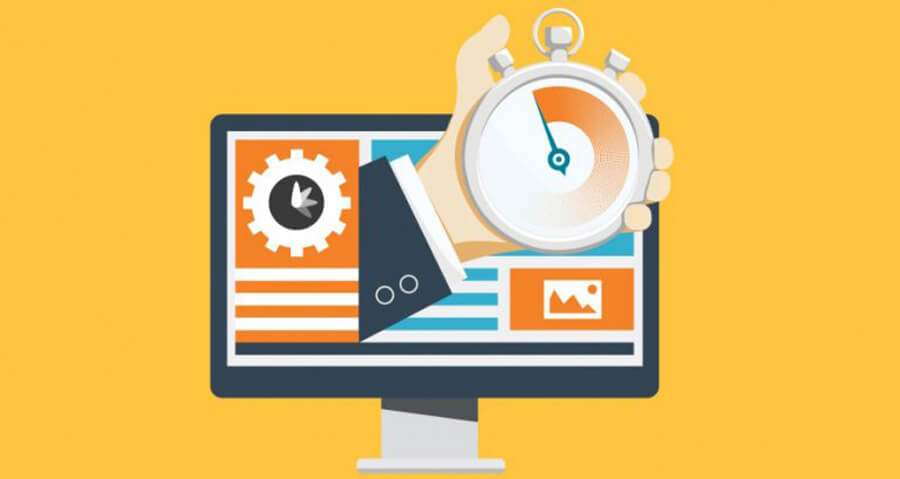We’ve all been in the situation where you try to access a website and it’s just taking too long, so we leave and move on to the next. Website page speed effects many aspects of your business from sales to SEO.
In this article we discuss website page speed and how it affects SEO rank for your business and what you can do to improve speed.
Page speed is the time a website visitor has to wait before a web page is completely loaded. The ideal page speed is three seconds or less, however, most websites are running at about seven seconds to fully load.
Slow page speed has a negative effect on user experience. As we mentioned above, if your website is taking too long to load, a potential customer will simply move on to your competition.
Most significantly, slow loading web pages are penalized by Google which will ultimately hurt your SEO efforts. Google understands that people want answers to their questions and solutions to their problems fast. If the information on your page is slow to load, Google will demote it on the search engine results page.
What Causes a Slow Loading Page?
There are several contributing factors that affect page speed, here are the most common culprits of a slow website:
-Hosting: there are hundreds of hosting options for your website and in these cases, you get what you pay for. If you choose a cheap host, it can damage your website’s speed.
-Improper image sizing: the use of images that are too large or heavy can really slow down your page. Large images often carry with them extra data in the comments or lack compression.
-Embedded Media: media, such as videos that are embedded externally can be very valuable to your web page but tend to lower your site speed.
-Ad overload: not only are too many ads distracting and a turn-off for your customers, they also slow your site down.
-Theme choice: not all themes are created equal; themes with a lot of special effects will hurt your website speed.
-Widgets: while important to your website, too many can cause your speed to take a hit.
All of these situations will cause your website page speed to increase which means your business is suffering. You may be working to optimize your website for SEO, but if you have elements that are slowing it down, Google will never promote you to the top.
What You Can Do to Improve Website Page Speed
There are several free tools out there that will test your website speed for you. If yours is deemed to be too slow, you will want to correct the contributing factors as soon as possible.
Depending on your website knowledge, you may be able to correct many of the issues yourself. If you aren’t very well versed in web design, hiring a professional web design team to optimize your page speed is a great option.
From choosing proper hosting to optimizing your pictures and videos on your page, an experienced digital marketing agency will be able to make sure that your site loads in a flash so that you can better improve your SEO standings.




